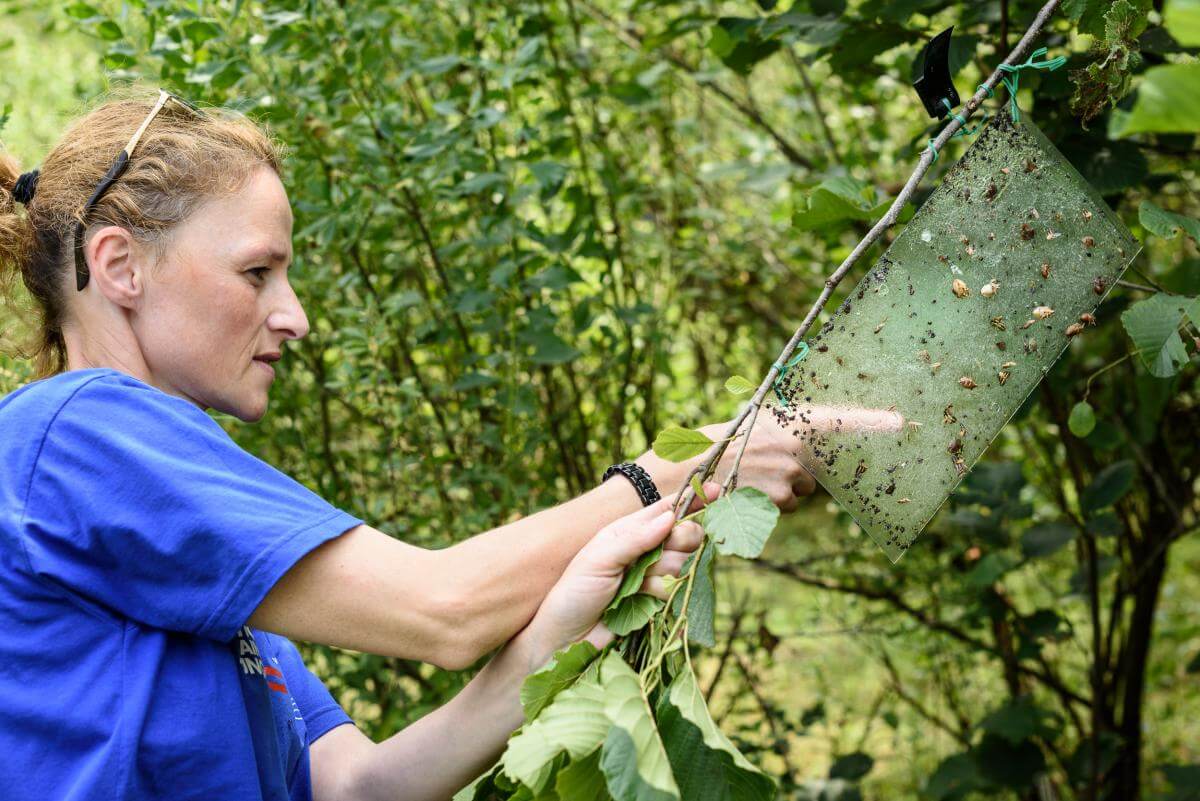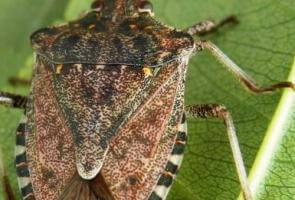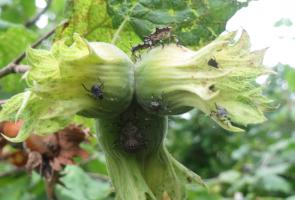News
Upgraded Pest Management System links experts and farmers online
14/05/20

This year, Action Against Hunger has upgraded its Integrated Pest Management System (IPMS) to link agricultural experts and farmers to weekly data and online resources needed to battle the highly resilient pest, the invasive Brown Marmorated Stink Bug (BMSB), that’s been causing huge damage in the orchards of Abkhazia for the past four years. When the pest first appeared, farmers sprayed large quantities of pesticides hoping to rescue a portion of their harvest, but without a proper understanding of the pest’s lifecycle or its distribution across the region, their efforts were largely unsuccessful. A better strategy was needed.
The IPMS has been developed by Action Against Hunger in consultation with Dr. Luciana Tavella and Dr. Lara Bosco, entomologists from the Department of Agricultural, Food and Forestry Sciences at Turin University, within the framework of the project, “Promoting integrated approaches to animal health and plant protection in Abkhazia”, with support and funding from the Austrian Development Cooperation (ADC).
Dr. Bosco has visited Abkhazia every year since 2017 to study the BMSB outbreak and, together with Action Against Hunger, has designed a weekly monitoring system using sticky traps that have been placed in orchards in five central and south-eastern districts. These traps are laced with pheromones which act as lures to attract BMSB adults and nymphs so that the number of pests can be counted each week. This allows us to better understand its development though the season and assess the level of infestation. At the end of the season an assessment of damage to the hazelnut crops was also conducted. From the data collected, Dr. Bosco was able to construct seasonal models to understand the BMSB lifecycle in the region, including its distribution and prevalence and the consequent impact on hazelnut harvests.

This information is also used to determine when there is a need for treatment. “Once 10 bugs appear in the trap,” says BMSB monitor Joni Shengelia, “it is necessary to take urgent measures to treat and get rid of it.” This informed approach to treatment is not only more effective at controlling pests, but also saves time, labour and money and reduces the potentially harmful side-effects of spraying on the environment and human health.
This year, with the upgraded system, farmers will be able to receive weekly alert messages via a WhatsApp group administered by Action Against Hunger informing them on the pest levels in their area based upon these monitoring results. By making warnings district-specific, the system helps farmers adapt their management strategies to local conditions. These messages also connect farmers to a smartphone-friendly online resource centre that helps them plan pest management actions. Resources include a map showing the most recent pest-level data by district, along with a series of videos, guides and booklets created by Action Against Hunger and other partners about hazelnut orchard management.
The ADC-funded project “Promoting integrated approaches to animal health and plant protection in Abkhazia” started in early 2018 and aims to strengthen and improve the quality of services provided by the Plant Protection Department and the Veterinary Services Department in Abkhazia. Both of these institutions are crucial in a place where a large portion of the population relies heavily on agriculture for their household income.

